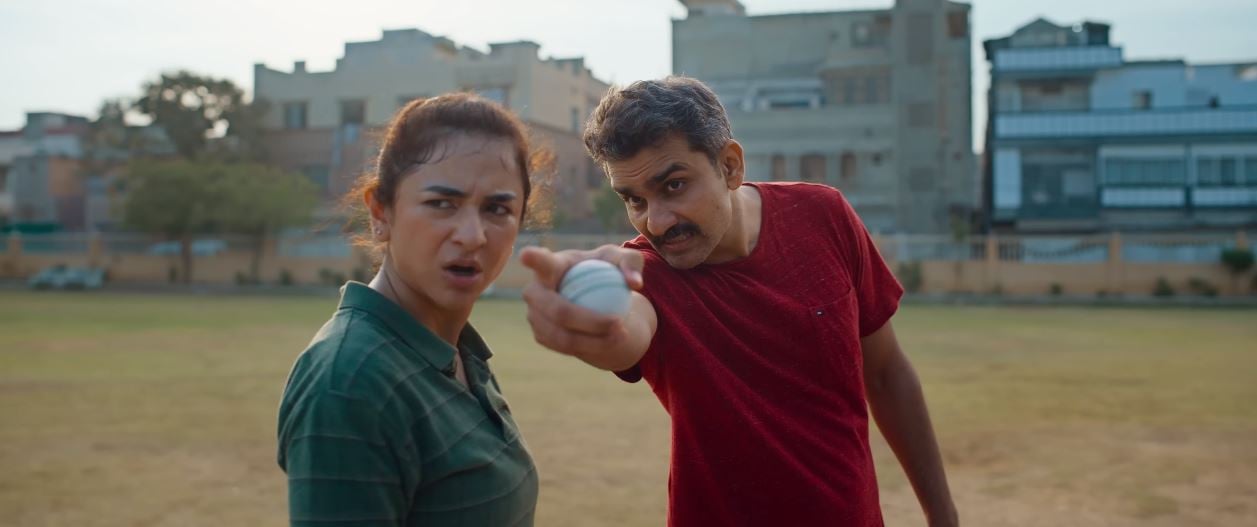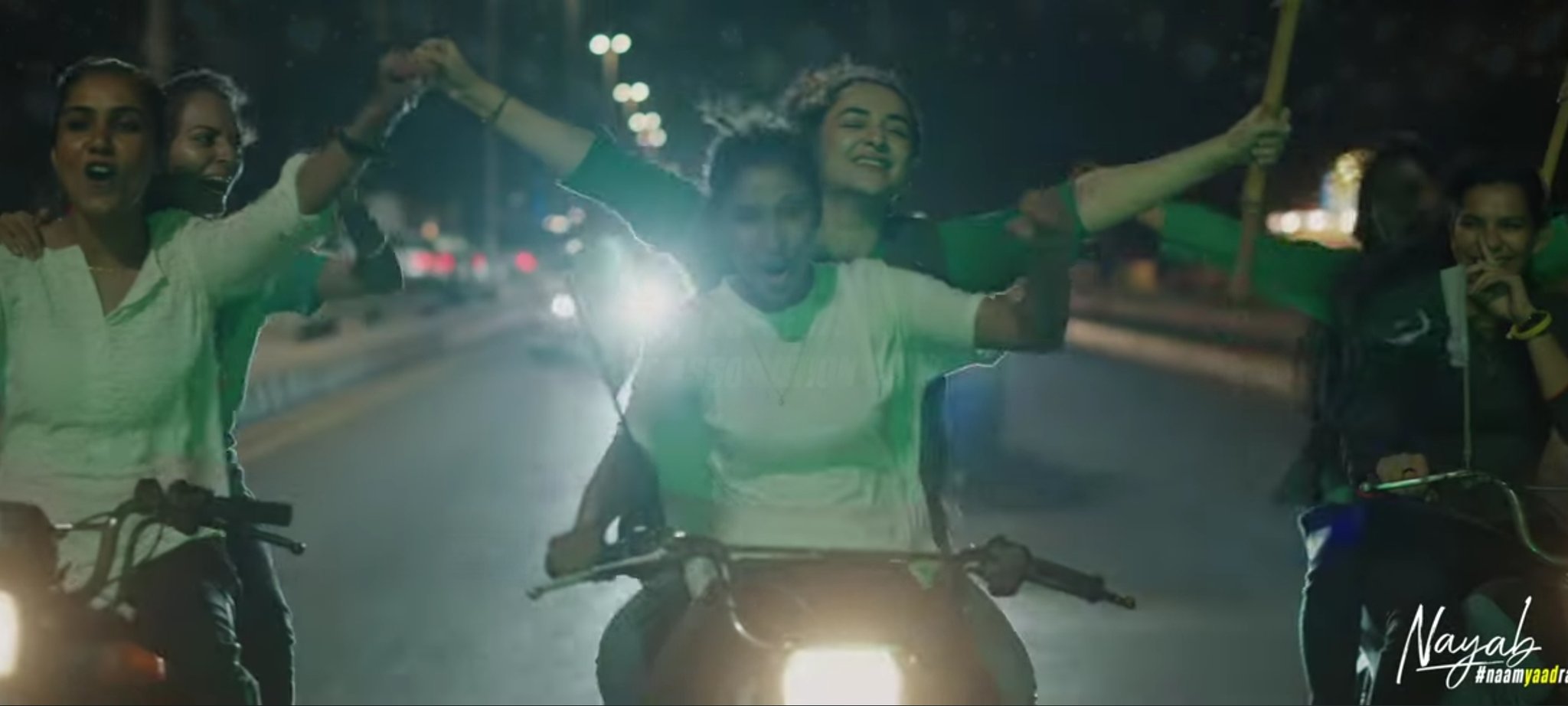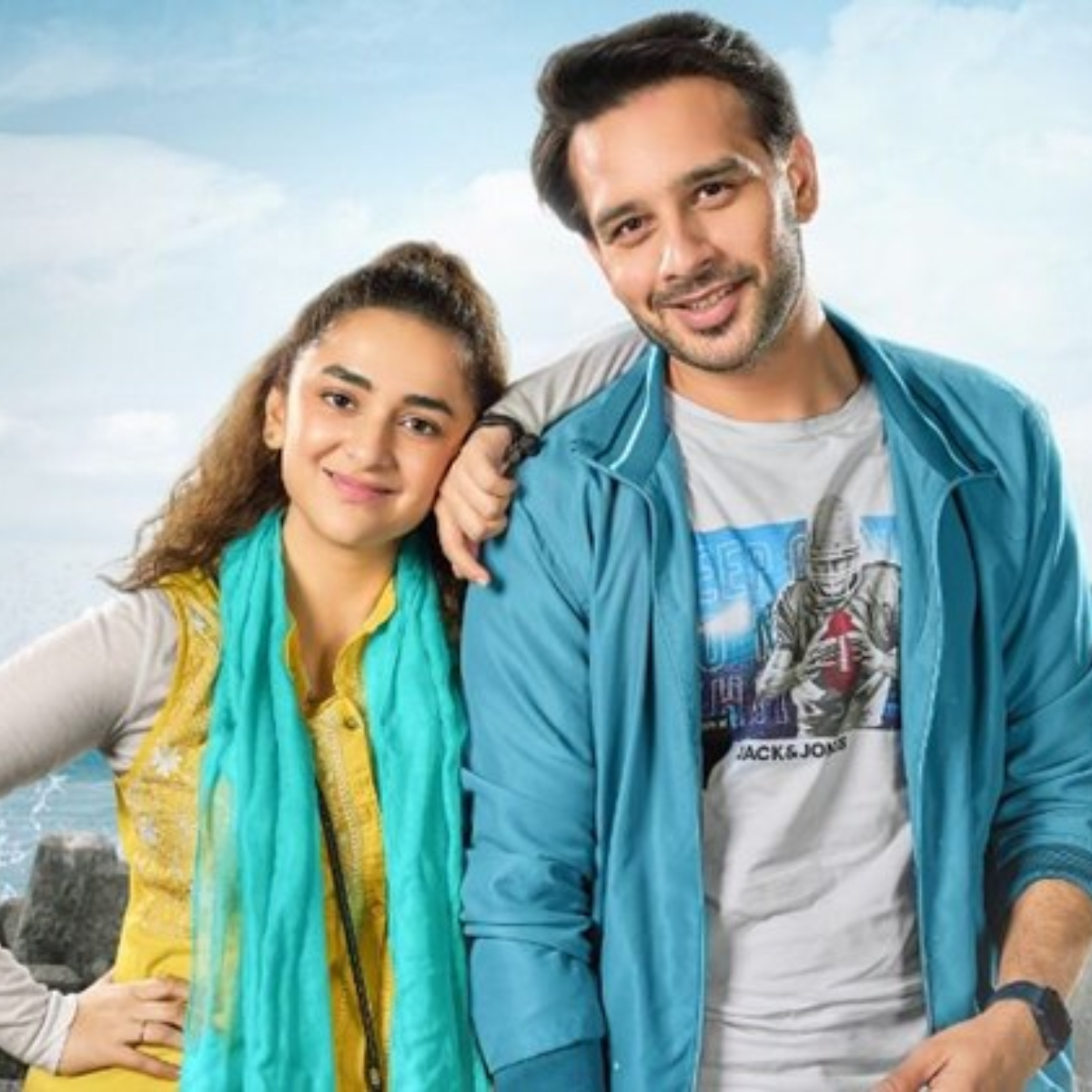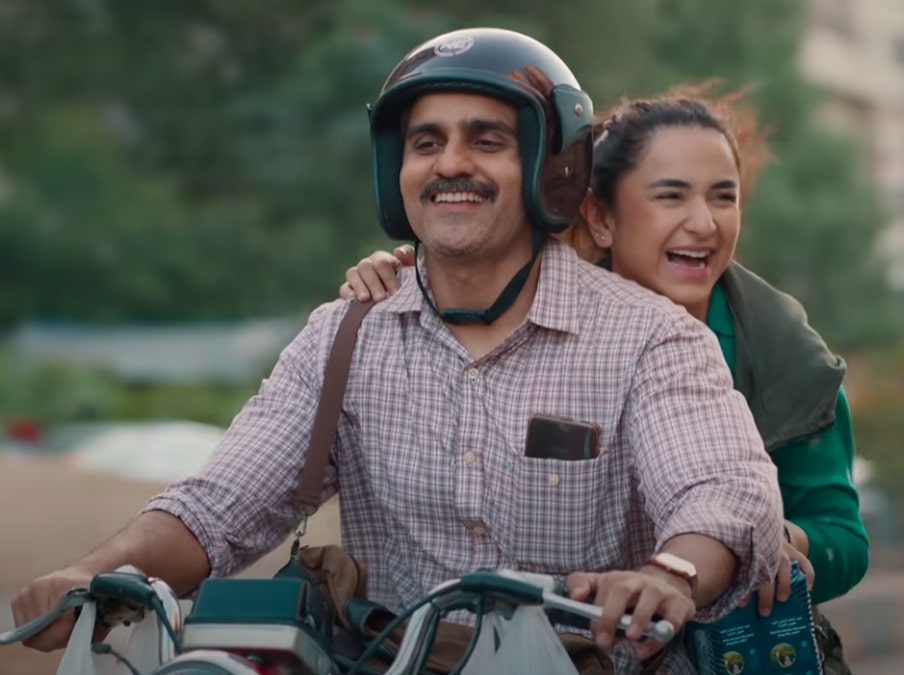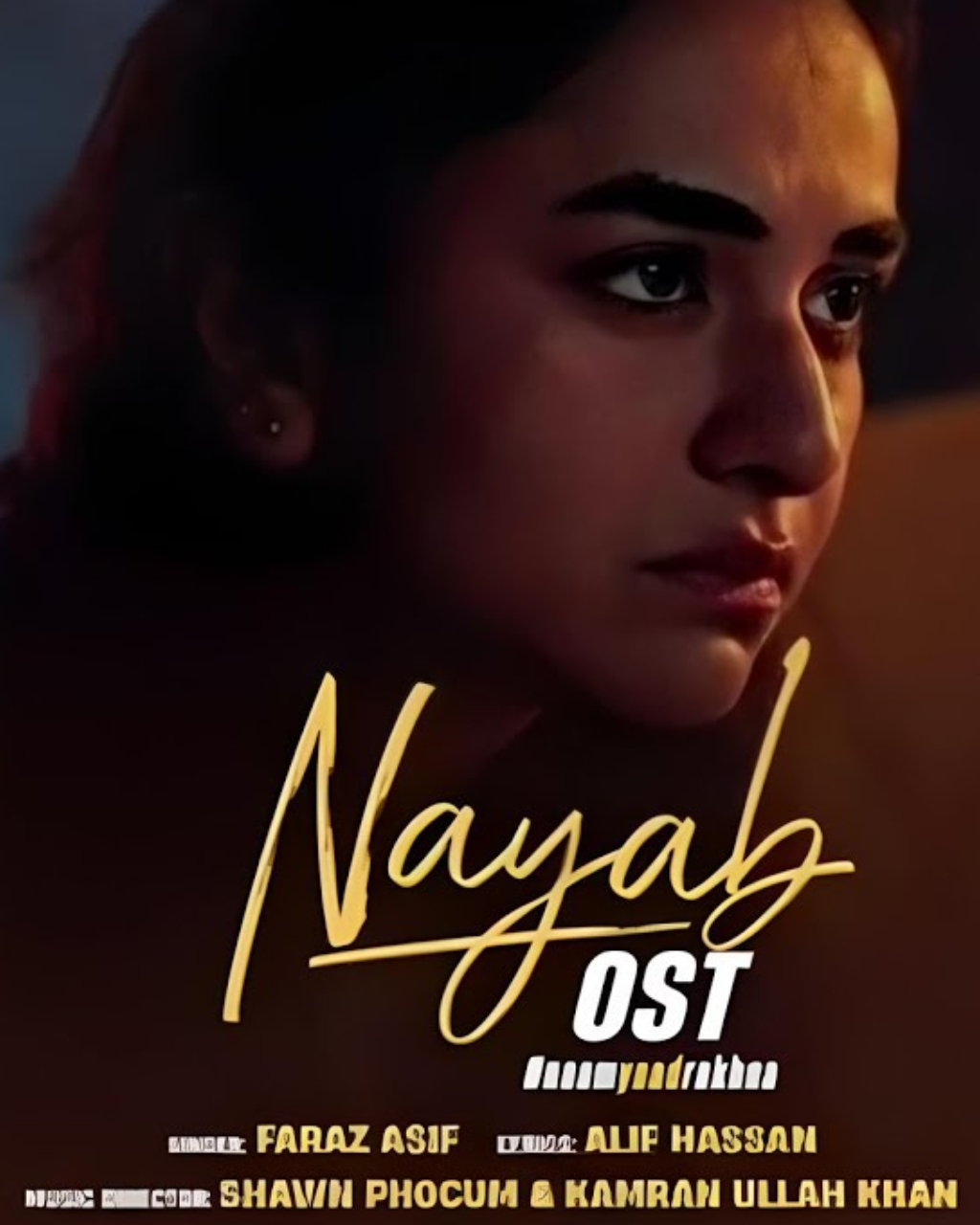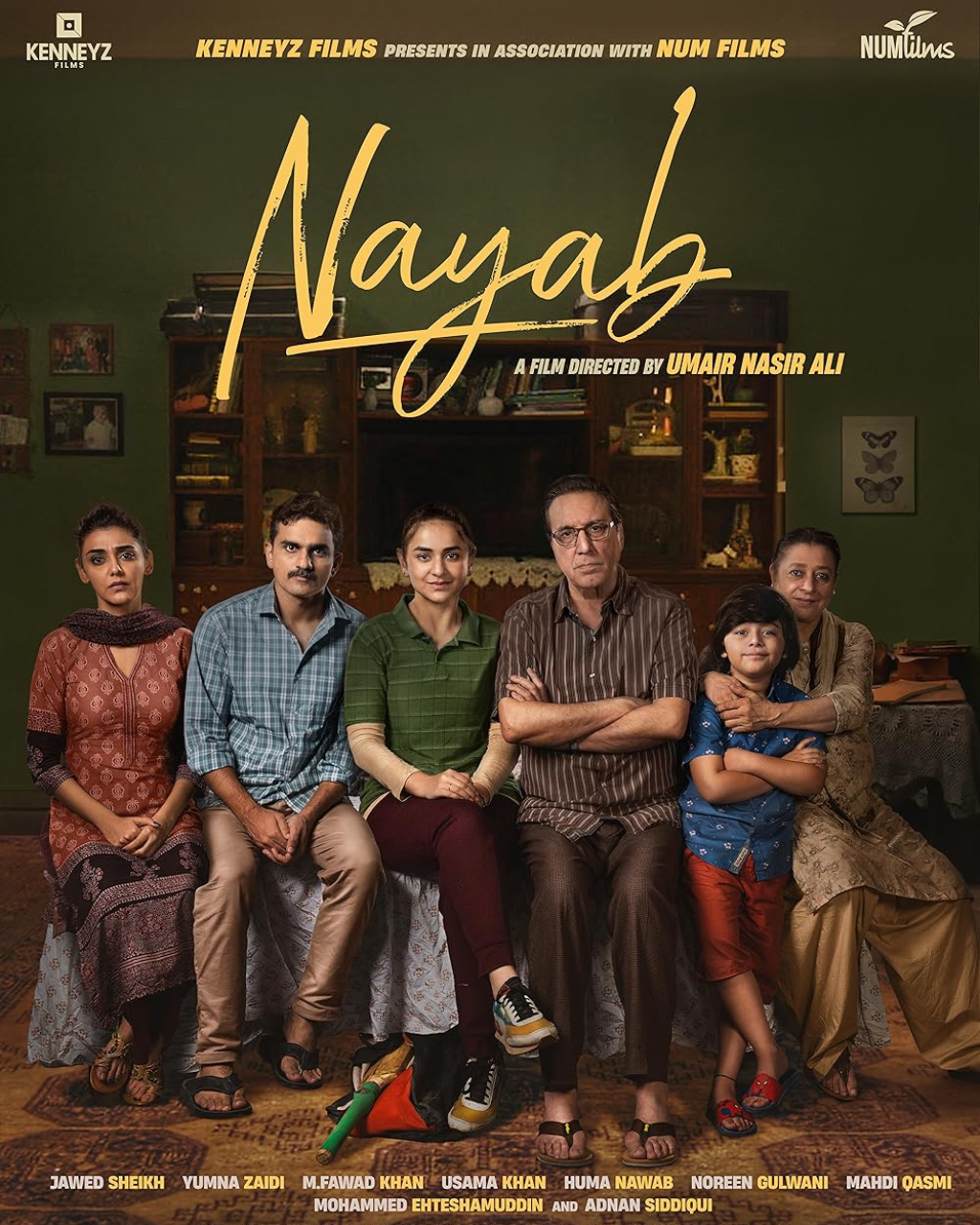Nayab, Pakistan’s maiden venture into the realm of women’s cricket cinema, held great promise as it embarked on a unique storytelling journey.
Considering it is the first Pakistani film of its kind, it raised expectations comparable to our industry rival’s iconic sports dramas like Mary Kom, Chak De India, and Dangal.
However, in Umair Nasir Ali’s directorial debut, Nayab falls short of delivering a compelling cinematic experience, failing to resonate with the masses despite the steep ticket prices. Certainly not worth the Rs1000 ticket at least.
The movie struggled to compete in a cinematic landscape where audiences crave grand spectacles, state-of-the-art VFX, and larger-than-life narratives, as exemplified by blockbusters like Jawan, Animal, The Avengers, and RRR.
Written by Ali Abbas Naqvi, the film is set in the scenic planes of Karachi and it is based on Nayab’s character who fights society, her circumstances, and her family to achieve her dream which is to become an international cricketer and defeat the old nemesis (India).
Plot, Screenplay & Dialogues
There was a lot of ambiguity on whether the story was catering to family dynamics or Yumna Zaidi’s (Nayab’s) story, this problem was evident in the film and there were repeated instances where a sequence was shown visually and then conveyed verbally causing repetition which led to the sequence getting dragged.
For instance, when Usama Khan’s (Zain) character collides with Nayab’s car in a minor accident, the writer seems to portray that his character has a lot of empathy and that message is conveyed symbolically during the sequence of the accident but there was no need to say the dialogue, “This is how we learn”, the message had already been conveyed visually.
The screenplay was all over the place, it was stretched and the subplots were never explored in depth and were only touched on a surface level due to which many character arcs remained incomplete. However, the premise of the script and storyline was extremely strong at its core but not well-constructed
Unnecessary Characters and Incomplete Characterization
Many characters seemed unnecessary in the film and did not facilitate the progression of the story which meant that the movie failed to grab the attention of audiences and there were instances where a cinema filled with ‘only 15 people’ could be seen with people yawning in it out of boredom.
Usama Khan’s character who plays Nayab’s love interest was poorly written, and inexplicably redundant, and halfway through the film you realize that there was no need for his character in the film, the progression of the story could’ve been smooth even without him.
From Usama Khan’s entrepreneurship journey to Nayab’s brother Akber played by (Fawad Khan) and his dreams, Akber’s wife Sadia played by Noureen Gulwani, all the characters never see the completion of their arc.
Comic relief was weak in the film especially the scenes where the match was taking place and the comedy was forced in the sequence through terrible and obnoxious commentary.
Repetition of the two funeral scenes was also not required and the unimaginable tragedy lane the film took in the last 20 minutes was unbearable because it did not match the genre of the film at any level.
Acting & Production
Acting is the strong point of the film and this is the reason the film can cross 10 crores at the box office, Yumna Zaidi’s acting is phenomenal, she portrays every emotion with perfection, her character becomes quirky, comical, and angry whenever the script requires and she delivers impeccably in her character.
Noreen Gulwani (Sadia) seemed natural in her character and as a viewer she makes you feel that you know her character in real life. Fawad Khan was the ‘man of the movie’ his character Akber bounces off well with Yumna Zaidi’s character in that brother-sister dynamic.
Javed Sheikh as Yumna Zaidi’s father played a mellow character this time and showed another layer in his countless shades of acting. Huma Nawab as the mother of Nayab was on point, their chemistry in the mother-daughter dynamic was flawless and she did not need dialogues to emote and convey the message through the silver screen.
Ehtesham Uddin’s cameo in a negative character was world-class and became Nayab’s nemesis with his gaunt expressions and shady body language. The guy haunts the viewer when one comes out of the cinema. Adnan Siddiqui got all his inspirational lines in one movie as the character of Sikandar Malik, the scene uplifts because of his screen presence but he sounds extremely preachy in his dialogues.
In terms of production, the frames were extremely congested, and indoor and outdoor lighting required a lot of improvement in every frame, not a single shot was meaningful or conveyed a message. There was an utter lack of artistic approach in the cinematography. There was no depth in the frame of the scenes, there were blurry lines between the background and foreground of the frames.
The editing of the film left a lot to be desired and it was immature, the continuity of the scenes in the first half of the film was haphazard while the sequences in the second half were extremely stretched and forced the viewer to downright boredom, the consistency in the editing could’ve been better. The 2-hour and 32-minute-long film could’ve been made a lot crispier.
Background Score and Music
The dubbing and sound design was immature and needed a lot of development in post-production. Pakistani cinema has evolved in this department since the release of Kamli and The Legend of Maula Jatt. A film is all about sounds and background score is a pivotal part of the cinematic experience.
The frequency of indoor and outdoor sound design was below average and some of the dialogues were even inaudible because of the poor execution of both the dubbing and background score.
None of the songs in the movie are memorable and as soon as one comes out of the cinema, they forget the songs as they are neither catchy nor influential.
In Conclusion
In the end, Nayab grapples with significant shortcomings that hinder its potential impact. Ali Abbas Naqvi’s narrative wrestles with a lack of clarity, wavering between family dynamics and the protagonist Nayab’s personal journey.
The screenplay, though anchored in a robust core concept, falters in execution, leaving subplots unexplored and character arcs incomplete. Unnecessary characters dilute the narrative, resulting in disengagement from the audience.
While the film’s saving grace lies in commendable performances from Yumna Zaidi, Fawad Khan, and others, the production aspects, including cinematography, editing, and sound design, fall prey to immaturity and lack of finesse.
Ultimately, Nayab falls short of leaving a lasting impression, unable to carve its niche among the cinematic giants it aspired to join.




